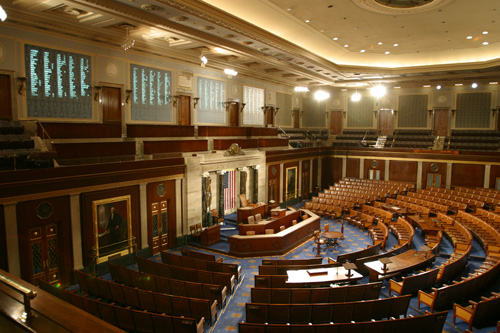
(This column ran in the Richmond Times Dispatch on December 12, 2012)
As Congress struggles to avoid the so-called “economic cliff,” it is imperative that our elected leaders don’t panic and do something really destructive to our ability to grow the economy and maintain the retirement promises to our elderly. Public policy by panic is not usually a good way of creating a strong economic base for sensible growth. Too often those who panic don’t look at history and don’t remember what works and doesn’t work in the real world.
Dividends and capital gains taxes are critical components to a healthy economy and if we are to grow at a reasonable rate coming out of the current economic doldrums then keeping dividends and capital
gains taxes at the current levels is critical. Investment and re-investment in our businesses is critical to the long-term health of our nation. Businesses need investment in order to grow … in order to hire people … in order to modernize its manufacturing … to update its computers, etc.
Tens of millions of Americans—from all income levels and age groups—own stocks that pay dividends. This is a critical piece to the fabric of our entire economic system and to increase these taxes as we desperately need our businesses to grow and employ more people would be counter-productive.
And senior citizens are the most likely to own dividend paying stocks and many retirees rely on dividend payments as a steady source of income. To cut the income to those already retired, or those who will be retiring in the next few years, is pulling the rug out from under those who relied on the current tax system to finance their “golden years.”
A 2010 study by the Tax Foundation found that taxpayers over the age of 55 receive 71% of all dividend income earned, 48% of which goes to those over 65. Low income households are also more likely to own dividend paying stocks than high income households. Both seniors and low income households prefer dividend-paying stocks because they need cash income for immediate consumption.
The current dividend tax rates benefit tens of millions of Americans who own dividend-paying stocks indirectly through mutual funds, life insurance policies, employer or union pension funds, 401(k) plans, or individual retirement accounts. These dividends are part of the planning for sending students to college and for starting small businesses. To change the rules will impact these two areas are sure.
Maintaining the current dividend tax rate will help us moving into a real economy recovery. The existing tax rate on dividends and capital gains encourages investment that stimulates economic growth and job creation. To increase those tax rates at this fragile economic time could help stifle our economic recovery and discourage the savings and investments that are the engine of economic growth.
As tens of millions of Americans are entering their retirement every year, or are close to doing so, they have planned their future finances based on the current tax rates on dividends and capital gains. To increase those rates is frankly unfair to these millions of our citizens who have relied on government’s promise on dividend and capital gains.
The extension of the current dividend and capital gains tax rate could provide much needed certainty to businesses, families and retirees who now face the threat of a looming tax increase while the economy is just beginning to recover.
Many don’t realize that dividend income and capital gains are already taxed twice. Corporations pay taxes on their annual earnings at rates up to 35%. When corporations provide dividends to shareholders using their earnings, it is then taxed again at the individual level. This is the same with capital gains. The growing value of stock is based on the success of the company that is paying all sorts of taxes: property taxes, sales taxes, gross receipt and machine and tool taxes in some jurisdictions in our state, and corporate income taxes not to mention the incredible cost of working through the growing regulatory regime that has been built over the last two decades or more. And when someone sells stock and pays a capital gains tax, that is yet another tax on success.
Allowing the current dividend and capital gains tax rates to expire will only worsen the tax burden on shareholders and those who have relied on the current rates for their retirement planning. This is not the way for government to encourage economic growth or help those currently retired or within sight of retirement.

Email this author
- The Most Progressive Budget in Virginia’s History - December 21, 2019
- When is a Clean Water Act Permit Needed? - December 21, 2019
- Should U.S. Consider Modern Monetary Theory to Improve Economy? - December 21, 2019
